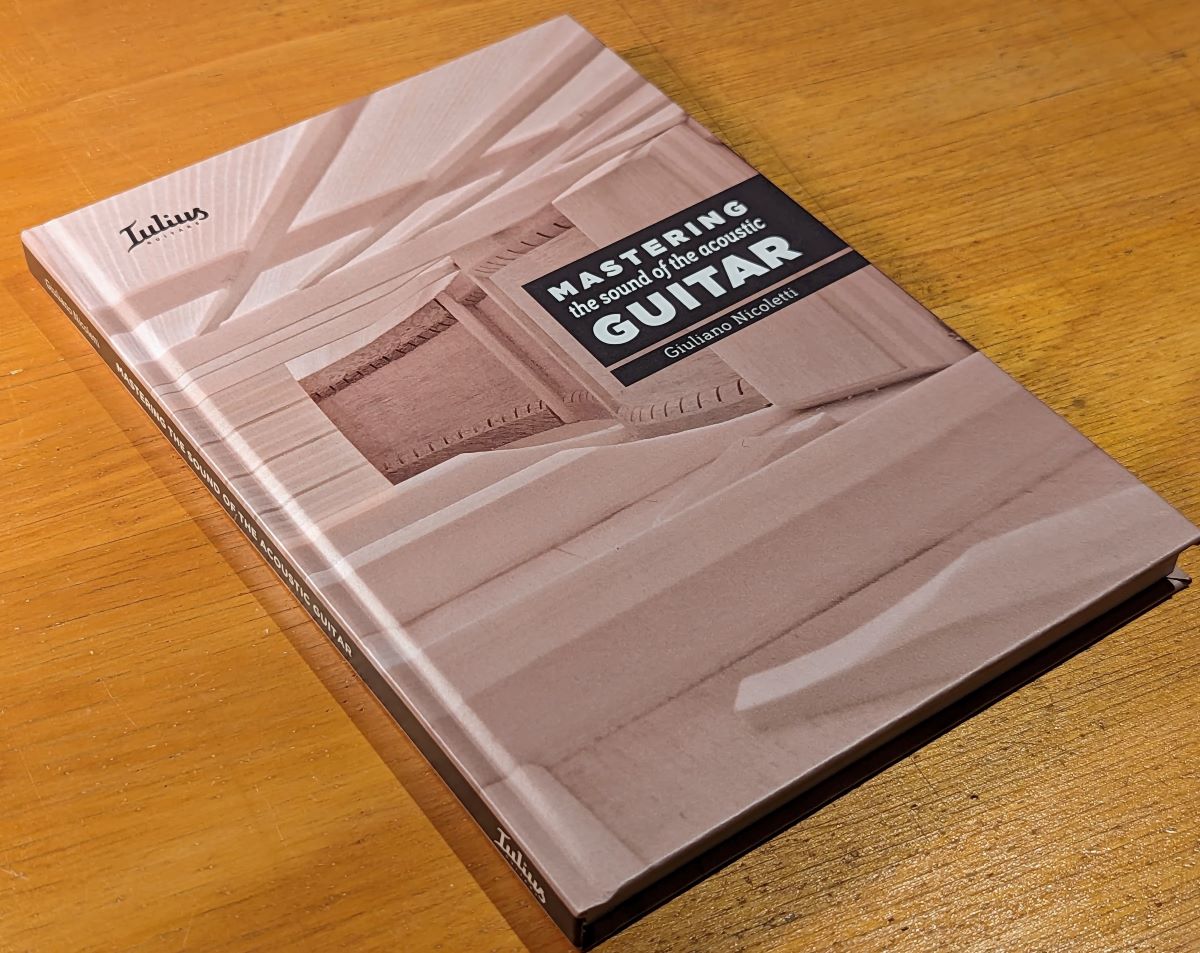Mastering the sound of the acoustic guitar

Ever wondered how to measure the sound of the guitars you build? How to shape its sound signature, with a simple method? How to choose the best tone wood for your project, or to solve problems of resonances, or wolf notes?
Mastering the sound of the acoustic guitar is a workshop manual written for guitar makers, that explains how the acoustic guitar works, how to shape the sound it produces and how to measure it in a simple and repeatable way. From tone wood technical evaluation and selection to fine tuning the performances of the instrument during the build or troubleshooting acoustic problems of a finished instrument, such as wolf tones.
A complete package of calculation and simulation tools is available for download, together with the database of the numerous measurements that illustrates each step.
This manual is the perfect choice to enter the fantastic world of acoustic measurements and improve the sonic signature and performances of any type of acoustic and classical guitar, both for guitar makers and repair-maintenance shops, with 160 pages of beautifully color printed photos, illustrations, and graphics.
Michael Greenfield, Greenfield Guitars
“For those wanting to understand the dynamics of a coupled acoustic system, take measurements, and realize useful data (mechanical and acoustic) in order to craft better guitars, this manual will greatly accelerate and demystify the process. It distills the concepts into easily understandable tasks. Of course, it is not a substitute for empirical experience, and ultimately, doing the work. I wish this book had been written 30 years ago…”
Zach Lefebvre, Treehouse Guitars
“The method that Giuliano lays out in his manual not only covers all the important details and how to measure them consistently, it also explains the relationship between them, the importance of these relationships and how to control them. And perhaps what I like most about it is that he does not present one way as “the best” (after all, it’s all so subjective). Giuliano’s method makes this complicated testing very approachable to even beginners and lays the groundwork for guitar makers to have a database that could easily be universal and shared amongst the luthier community.”


